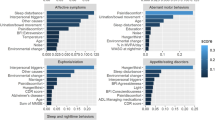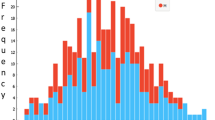Abstract
Recent studies proved that psychological distress is an accelerator of Alzheimer disease (AD). However, the factors that affect the psychological distress of AD patients are still unknown. The aim of this study was to predict the incidence and identify the risk factors of psychological distress in AD patients. Artificial neural networks and Machine learning models were used to predict the incidence of psychological distress in AD patients. Linear regression and decision tree models were used to identify the factors of psychological distress in AD patients. Among all models for predicting the incidence of psychological distress in AD patients, the artificial neural networks with 8 hidden neurons achieved the highest predictive accuracy of 81.92%. In the five machine learning models, the ADTree algorithm made the highest Predictive Accuracy of 77.94%. As for risk factor analysis, the Linear Regression and Decision Tree models reported similar sets of variables that affect the psychological distress of AD patients. Three variables were reported by Linear Regression to be in negative correlation with psychological distress: the use of professional care service, caregiver consuming cigarette, and caregiver consuming alcohol. The incidence of psychological distress in AD patients can be predicted by artificial neural networks with an accuracy of 81.92%. There are four main risk factors for psychological distress of AD patients: “Caregiver experiencing psychological distress”, “Caregiver suffering from chronic disease or cancer”, “Care recipient’s health status being serious or getting worse”, and “Lack of professional care service”. These findings are otentially helpful for the prediction, prevention and intervention of psychological distress in AD patients.
Similar content being viewed by others
References
Wilson, R. S., Barnes, L. L., Bennett, D. A., Li, Y., Bienias, J.L., Mendes de Leon, C. F. and Evans, D.A.Proneness to psychological distress and risk of Alzheimer disease in a biracial community. Neurology, 64(2):380–2, 2005.
Wilson. R. S., Evans, D. A., Bienias, J. L., Mendes de Leon, C. F., Schneider, J. A. and Bennett, D. A.Proneness to psychological distress is associated with risk of Alzheimer’s disease. Neurology, 61(11):1479–85, 2003.
Wilson, R. S., Fleischman, D. A., Myers, R. A., Bennett, D.A., Bienias, J. L., Gilley, D. W. and Evans, D. A.Premorbid proneness to distress and episodic memory impairment in Alzheimer’s disease. J Neurol Neurosurg Psychiatry., 75(2):191–5, 2004.
Rinaldi, P., Spazzafumo, L., Mastriforti, R., Mattioli, P., Marvardi, M., Polidori, M. C., Cherubini, A., Abate, G., Bartorelli, L., Bonaiuto, S., Capurso, A., Cucinotta, D., Gallucci, M., Giordano, M., Martorelli, M., Masaraki, G., Nieddu, A., Pettenati, C., Putzu, P., Tammaro, V. A., Tomassini, P. F., Vergani, C., Senin, U. and Mecocci, P.Predictors of high level of burden and distress in caregivers of demented patients: results of an Italian multicenter study. Int J Geriatr Psychiatry, 20(2):168–74, 2005.
Aguglia, E., Onor, M. L., Trevisiol, M., Negro, C., Saina, M. and Maso, E.Stress in the caregivers of Alzheimer’s patients: an experimental investigation in Italy. Am J Alzheimers Dis Other Demen., 19(4):248–52, 2004.
Covinsky, K. E., Newcomer, R., Fox, P., Wood, J., Sands, L., Dane, K. and Yaffe, K.Patient and caregiver characteristics associated with depression in caregivers of patients with dementia. J Gen Intern Med., 18(12):1006–14, 2003.
Craig, D., Hart, D. J., McIlroy, S. P. and Passmore, A. P.Association analysis of apolipoprotein E genotype and risk of depressive symptoms in Alzheimer’s disease. Dement Geriatr Cogn Disord., 19(2–3):154–7, 2005.
Schulz, R., Burgio, L., Burns, R., Eisdorfer, C., Gallagher-Thompson, D., Gitlin, L. N. and Mahoney, D. F.Resources for Enhancing Alzheimer’s Caregiver Health (REACH): overview, site-specific outcomes, and future directions. Gerontologist, 43(4):514–20, 2003.
Wisniewski, S. R., Belle, S. H., Coon, D. W., Marcus, S. M., Ory, M. G., Burgio, L. D., Burns, R. and Schulz, R.The Resources for Enhancing Alzheimer’s Caregiver Health (REACH): project design and baseline characteristics. Psychol Aging, 18(3):375–84, 2003.
Schulz, R., Belle, S. H., Czaja, S. J., Gitlin, L. N., Wisniewski, S. R. and Ory, M. G.Introduction to the special section on Resources for Enhancing Alzheimer’s Caregiver Health (REACH), Psychol Aging, 18(3):357–60, 2003.
Frank, E., Hall, M., Trigg, L., Holmes, G. and Witten, I. H.Data mining in bioinformatics using Weka. Bioinformatics, 20(15):2479–81, 2004.
Rumelhart, D. E., Hinton, G. E. and Williams, R. J.Learning internal representations by error propagation, In Parallel Distributed Processing: Explorations in the Microstructure of Cognition, MIT Press; 45–76, 1986.
Helman, P., Veroff, R., Atlas, S. R. and Willman, C.A. Bayesian network classification methodology for gene expression data. J Comput Biol., 11(4):581–615, 2004.
Cessie, S. and Houwelingen, J. C.Ridge Estimators in Logistic Regression. Applied Statistics, 41(1):191–201, 1992.
Freund, Y. and Mason, L.The alternating decision tree learning algorithm. Proceeding of the Sixteenth International Conference on Machine Learning, Bled, Slovenia, 124–133, 1999.
Goethals, P., Gasparyan, K. and De Pauw, N.River restoration simulations by ecosystem models predicting aquatic macroinvertebrate communities based on J48 classification trees. Meded Rijksuniv Gent Fak Landbouwkd Toegep Biol Wet., 66(4):213–7, 2001.
Mani, S. and Pazzani, M. J.Guideline generation from data by induction of decision tables using a Bayesian network framework. Proc AMIA Symp.; 518–22, 1998.
Di Luca, M., Grossi, E., Borroni, B., Zimmermann, M., Marcello, E., Colciaghi, F., Gardoni, F., Intraligi, M., Padovani, A. and Buscema, M.Artificial neural networks allow the use of simultaneous measurements of Alzheimer disease markers for early detection of the disease. J Transl Med., 27;3:30., 2005.
La Rosa, E., Consoli, S. M., Le Clesiau, H., Soufi, K. and Lagrue, G.Psychosocial distress and stressful life antecedents associated with smoking. A survey of subjects consulting a preventive health center Presse Med., 33(14 Pt 1):919–26, 2004.
Honda, K.Psychosocial correlates of smoking cessation among elderly ever-smokers in the United States. Addict Behav, 30(2):375–81, 2005.
Hill, T. D. and Angel, R. J.Neighborhood disorder, psychological distress, and heavy drinking. Soc Sci Med. 61(5):965–75. Epub 2005.
Mahoney, R., Regan, C., Katona, C. and Livingston, G.Anxiety and depression in family caregivers of people with Alzheimer disease: the LASER-AD study. Am J Geriatr Psychiatry, 13(9):795–801, 2005.
Farran, C. J., Loukissa, D. A., Lindeman, D. A., McCann, J. J., and Bienias, J. L.Caring for self while caring for others: the two-track life of coping with Alzheimer’s disease. J Gerontol Nurs., 30(5):38–46, 2004.
Author information
Authors and Affiliations
Corresponding author
Rights and permissions
About this article
Cite this article
Zhou, X., Xu, J. & Zhao, Y. Machine learning methods for anticipating the psychological distress in patients with alzheimer’s disease. Australas. Phys. Eng. Sci. Med. 29, 303–309 (2006). https://doi.org/10.1007/BF03178395
Received:
Accepted:
Issue Date:
DOI: https://doi.org/10.1007/BF03178395




